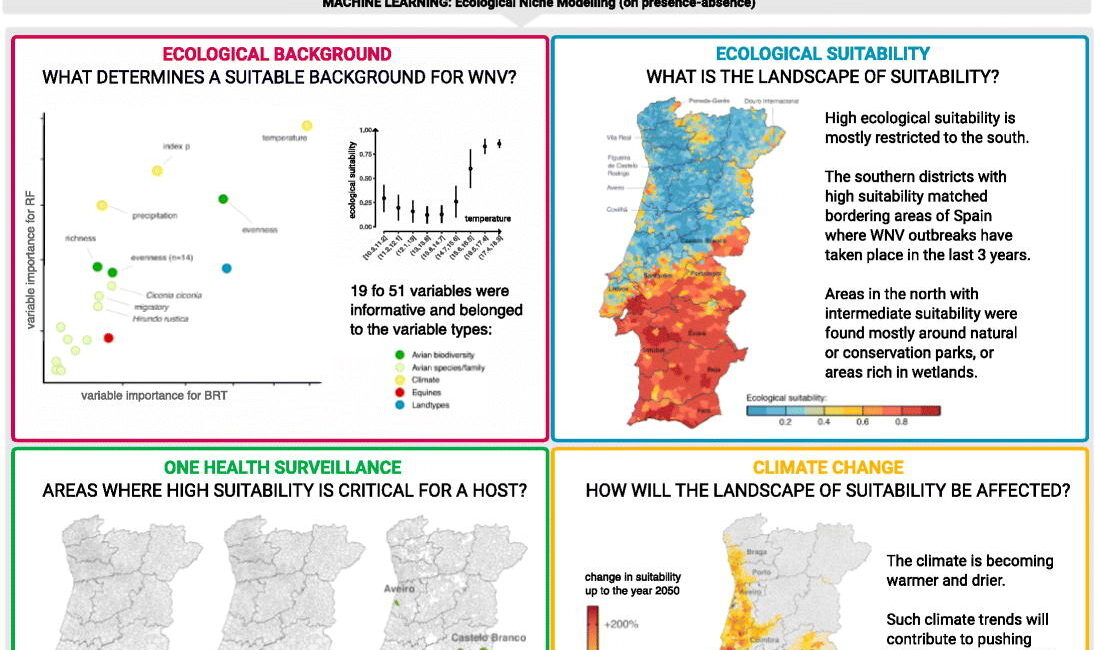Collaborators: Martim A. Geraldes, Mónica V. Cunha, Carlos Godinho, Ricardo F. de Lima, Marta Giovanetti, José Lourenço
Summary: West Nile (WNV) is a zoonotic arbovirus with an expanding geographical range and epidemic activity in Europe. Not having yet experienced a human-associated epidemic, Portugal remains an outlier in the Mediterranean basin. In this study, we apply ecological niche modelling informed by WNV historical evidence and a multitude of environmental variables from across Portugal. We identify that ecological backgrounds compatible with WNV historical circulation are mostly restricted to the south, characterized by a warmer and drier climate, high avian diversity, specific avian species and land types. We estimate WNV ecological suitability across the country, identifying overlaps with the distributions of the three relevant hosts (humans, birds, equines) for public and animal health. From this, we propose a category-based spatial framework providing first of a kind valuable insights for WNV surveillance in Portugal under the One Health nexus. We forecast that near future climate trends alone will contribute to pushing adequate WNV ecological suitability northwards, towards regions with higher human density. This unique perspective on the past, present and future ecology of WNV addresses existing national knowledge gaps, enhances our understanding of the evolving emergence of WNV, and offers opportunities to prepare and respond to the first human-associated epidemic in Portugal.
Publication Date: 2024-09-00
Journal: Science of The Total Environment
DOI: https://doi.org/10.1016/j.scitotenv.2024.173875

